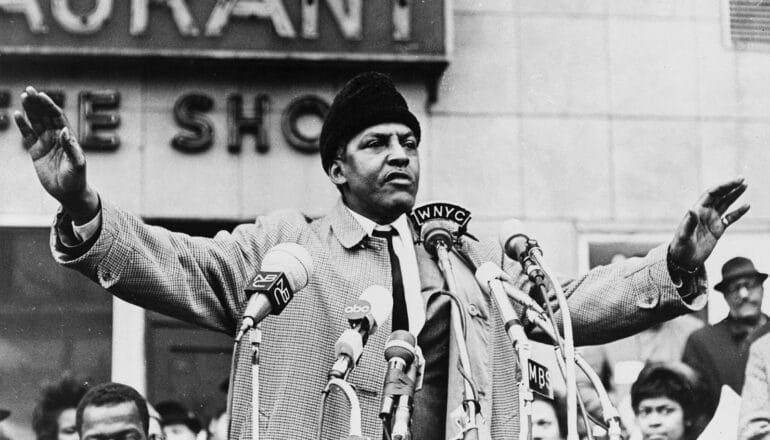
A new book puts the spotlight on Bayard Rustin, an under-appreciated civil rights leader.
The face and sound of the March on Washington for Jobs and Freedom, which took place on August 28 nearly 60 years ago, undoubtedly belong to Martin Luther King, Jr. His “I Have a Dream” speech from that day has been studied, cited, and emulated around the world, with his words frequently used as a barometer for both progress and stagnation since then.
“To the extent that King’s words were about bringing an end to codified, legal segregation, then the dream has been realized,” University of Manchester sociologist Gary Younge wrote in the Nation 50 years after the March on Washington. “But to the extent that the speech was about ending racism, one can say with equal confidence that its realization is not even close.”
“Rustin changed the course of US history and he changed the course of world history. And he did this not just on August 28, 1963.”
While the long-term impact of the speech remains the subject of scrutiny, the success of the march itself was unquestionably due to the skills and experience of another civil rights leader who hasn’t always been as widely celebrated.
“No one had stronger qualifications for organizing the March on Washington for Jobs and Freedom than Bayard Rustin,” editor Michael G. Long writes in Bayard Rustin: A Legacy of Protest and Politics (NYU Press, 2023). The volume of essays examines the life and work of the pacifist strategist who introduced Gandhian tactics to the American civil rights movement and who, with King, founded the Southern Christian Leadership Conference. “It seemed as if Rustin’s entire professional career had been preparing him to become the lead organizer of the March on Washington.”
Rustin’s contributions as a civil rights leader, which also included cofounding the Congress of Racial Equality and advising King on the Montgomery bus boycott, have often been overlooked in popular understanding of the March on Washington and in civil rights history in general.
“This is partly because journalists and scholars have followed the lead of Rustin’s colleagues, who were uncomfortable with his gay sexuality and attempted to keep him in the shadows,” Long observes.
Slowly, thanks to the work of Long and other scholars, including in particular those who have sought to highlight LGBTQ+ figures whose contributions have often been excluded from the historical record, Rustin’s leading role in the march and the movement is being restored to popular consciousness.
In November, Netflix will release Rustin, a film directed by George C. Wolfe (Ma Rainey’s Black Bottom) and starring Chris Rock, Audra McDonald, and Colman Domingo (Lincoln), who plays Rustin. Michelle and Barack Obama are among its executive producers.
Here, Long, who has authored and edited multiple books on both Rustin and Jackie Robinson, who broke Major League Baseball’s color barrier in 1947, talks about the March on Washington’s lesser-known aspects and the forces that shape our understanding of history:
The post Book highlights legacy of civil rights leader Bayard Rustin appeared first on Futurity.
from Futurity https://ift.tt/snzkYoA
No comments:
Post a Comment